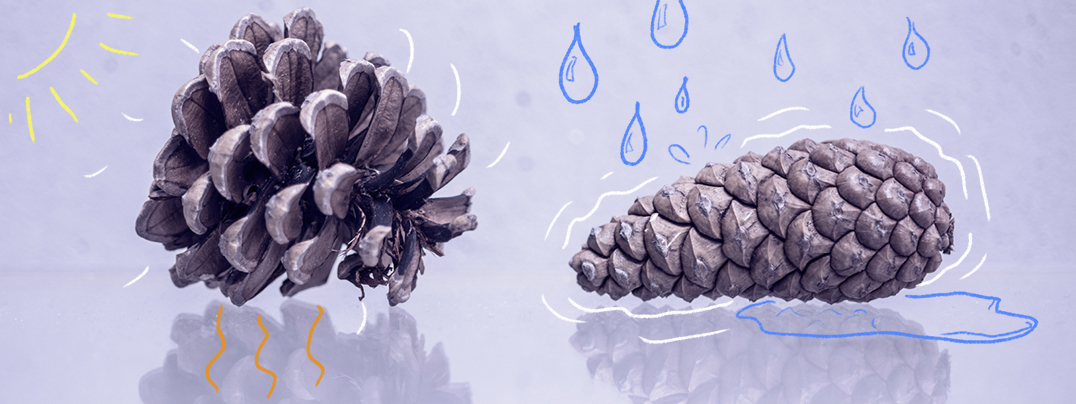News & Press
Science Festival
The University of Freiburg’s scientists show what they can do at Science Days 2020

How can the scales of a pinecone be moved? At the digital Science Days 2020, researchers from the excellence cluster livMatS - Living, Adaptive and Energy-autonomous Materials Systems will demonstrate what they are working on. Picture: Michal Rössler/ livMatS
How do you make a microchip? How does the immune system work? And what is it about pinecones that inspires scientists? The annual Science Days event gives scientists from institutions like the University of Freiburg the opportunity to get kids and teenagers excited about the work they do. Due to the coronavirus pandemic, this year’s event is online. Kids can take part in Science Days for free from October 19 to November 29.
Normally, hundreds of kids and parents would be flocking to Europa-Park in Rust for this event. Instead, this year, they’re turning on their computers and laptops to explore the shows, experiments, and other attractions offered during Science Days. This year’s program includes, among other things, short videos (in german only) made by the Faculty of Engineering about special materials that are used to make small structures and systems. In the videos, engineers explain what these materials can do and how they can be manufactured in an eco-friendly way. Researchers from the excellence cluster CIBSS – Centre for Integrative Biological Signalling Studies are also showing videos (in german only) about how to make DNA visible using simple household items. They also explain what the immune system is capable of and have a fun quiz that kids can take to test their knowledge of cells. Finally, scientists from the excellence cluster livMatS – Living, Adaptive and Energy-autonomous Materials Systems have made a series of videos (in german only) explaining how the scales of pinecones move, and what happens in the plant tissue when they do.
These contributions by University of Freiburg scientists to Science Days 2020 give kids an idea about what three key areas of study at the University – the Departments of Computer Science, Microsystems Engineering, and Sustainable Systems Engineering – are all about. Researchers in these three departments, which are part of the Faculty of Engineering, work to develop things like microscopic parts and chips for smartphones, game consoles, and navigation systems. CIBSS focuses on communication processes between and within cells from the molecular level all the way up to cells and organs, while livMatS develops novel material systems inspired by biology that can adapt to their environment like plants and animals do.
Patrick Siegert
Science Days 2020 Program
The hygroscopic materials systems and building envelopes inspired by the movement of pine cone scales are being developed by the BioElast research group that is associated with the Cluster of Excellence livMatS, and funded as a cooperative project by the Universities of Freiburg (IMTEK & PBG) and Stuttgart (ICD & IBB).
